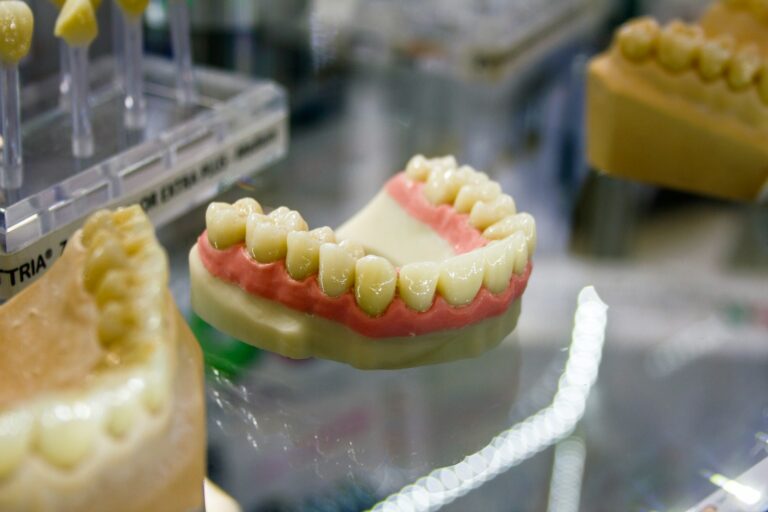
Dental crowns serve as an important solution for a range of dental concerns, offering both protection and aesthetic improvement.
If you have experienced a damaged tooth, undergone a root canal, or require a replacement for a large filling, it is crucial to know when to consider a crown in order to maintain your oral health. But when do you need a dental crown?
This article will delve into seven common situations that may necessitate a dental crown, outline the procedure for obtaining one, and highlight the numerous benefits they provide.
Explore how crowns can restore functionality and enhance your smile!
When Do You Need a Dental Crown?

Understanding when a dental crown is needed is essential for maintaining dental health and ensuring effective tooth restoration. Dental specialists typically recommend a crown when a tooth has suffered significant damage, such as cracks or extensive decay.
This procedure acts as a protective covering, restoring both the function and appearance of the tooth while also preventing further issues that could lead to more serious dental complications.
Whether dealing with a cracked tooth, needing to replace a large filling, or recovering from a root canal, being aware of the appropriate circumstances can give the power to individuals to make informed decisions about their oral health.
1. For a Damaged or Broken Tooth
A dental crown is often recommended for individuals with a damaged or broken tooth, as it serves as a long-term solution that effectively restores both function and aesthetics. These crowns are designed to completely encase the tooth, providing strength and protection against further deterioration.
There are several types of crowns available, including porcelain, metal, and resin, each offering unique advantages tailored to individual preferences and dental needs.
- For example, porcelain crowns are often chosen for their natural appearance, making them particularly suitable for front teeth.
- Metal crowns are well-regarded for their durability, especially at the back of the mouth.
It is essential to seek timely dental intervention, as delaying necessary treatment can lead to more serious issues, such as infections or even tooth loss. Therefore, being aware of these restoration options is vital for maintaining optimal dental health.
2. After a Root Canal Treatment
If you have recently undergone root canal treatment, it is essential to consider getting a dental crown to protect the tooth’s structure and ensure its longevity.
This restorative procedure plays a critical role in maintaining the functionality of the affected tooth, which may have become vulnerable after the removal of infected pulp and surrounding tissues. A dental crown serves as a protective cap, effectively strengthening the treated tooth while helping to restore its natural shape and function.
Without this important step, the tooth may be at risk of fractures or reinfection, potentially leading to further complications.
Therefore, securing a crown after a root canal not only enhances the tooth’s durability but also allows for normal chewing and biting, ultimately promoting overall oral health.
3. To Cover a Dental Implant
A dental crown plays a vital role in restoring a dental implant, providing both coverage and aesthetic appeal for the artificial tooth. Often, the process involves the use of a temporary crown to protect the implant site and ensure functionality while the final crown is being crafted.
The procedure typically begins with the dentist selecting the appropriate material for the permanent crown, which can range from porcelain to metal based on the tooth’s location and the patient’s specific needs. Once the final crown is designed to fit perfectly over the implant post, the dentist secures it in place, enabling natural chewing and speaking.
For individuals considering this procedure, understanding the role of a temporary crown and exploring dental insurance options that may cover a portion of the costs associated with both the implant and the crown is essential. This can help make the restoration process more affordable and easier to manage financially.
4. For Cosmetic Purposes
Many individuals choose to get dental crowns primarily for cosmetic reasons, as they can enhance the appearance of their smile by improving the shape, colour, and alignment of their teeth.
In contrast to temporary solutions like teeth whitening, which mainly aim for brightness and can occasionally result in uneven outcomes, dental crowns provide a more thorough approach to smile restoration. These crowns are custom-made to blend seamlessly with the surrounding teeth, ensuring that the overall aesthetic of the smile is either preserved or enhanced.
Additionally, they offer remarkable durability and strength, making them an excellent choice for those who have suffered damage or decay.
For those seeking a lasting enhancement, dental crowns emerge as a superior option, offering both aesthetic and functional benefits that can significantly elevate one’s confidence.
5. To Protect a Weak or Fractured Tooth
A weak or fractured tooth can be a cause for concern, and a dental crown serves as an essential protective measure, ensuring that the tooth remains intact and functional for many years to come.
These custom-fitted caps are specifically designed to cover the entire visible portion of the tooth, effectively shielding it from external forces that may lead to further damage or decay. By redistributing biting forces, crowns help preserve the tooth structure while allowing you to maintain normal chewing and speaking abilities.
The significance of dental crowns cannot be overstated; they not only enhance the aesthetic appearance of your smile but also play a crucial role in preventing complications that can arise from untreated dental issues.
With proper care, a dental crown can last for many years, acting as a protective barrier that contributes to the overall health and longevity of your teeth.
6. For Severe Tooth Decay
In cases of severe tooth decay, a dental crown serves not only to restore the tooth but also to prevent further decay and uphold overall oral health. This advanced restorative solution functions as a protective cap, encasing the damaged tooth and effectively sealing it from bacteria and harmful substances.
The process of dental restoration typically begins with a comprehensive examination conducted by a skilled professional at a dental practice. During this examination, imaging techniques may be utilised to assess the extent of the damage.
Afterward, the damaged tissue is meticulously removed, and a custom-made crown is designed to fit snugly over the remaining tooth structure, ensuring that both functionality and aesthetics are retained.
By opting for this treatment, individuals can regain their confidence in their smiles while also protecting their teeth from potential future issues.
7. To Replace a Large Filling
When extensive decay necessitates a large filling, opting for a dental crown may prove to be a more effective solution for tooth repair, providing a stable and lasting outcome.
This innovative method not only bolsters the structural integrity of the tooth but also significantly enhances its overall appearance. Dental crowns are designed to encompass the entire tooth, offering support and preventing further damage that could ultimately lead to tooth loss.
They effectively restore normal tooth function, enabling individuals to chew and speak comfortably. Many patients appreciate the aesthetic benefits of a dental crown, as these restorations can closely resemble the natural look of teeth, which often boosts confidence in their smile.
A comprehensive dental diagnosis is essential to determine the most appropriate course of action, ensuring optimal oral health is achieved.
What Is the Procedure for Getting a Dental Crown?

The process of obtaining a dental crown involves several steps to ensure an optimal fit and function.
It begins with the preparation of the tooth and culminates in the final placement of the crown.
This procedure often utilises advanced dental materials to achieve the best results.
1. Tooth Preparation
Tooth preparation serves as a crucial initial step in the dental crown procedure, during which the affected tooth is reshaped to ensure a secure fit for the crown.
This process requires the expertise of a dental specialist who meticulously removes any decayed areas and modifies the tooth structure to achieve an optimal fit. Precision is of utmost importance here, as even slight inaccuracies can affect the stability of the crown and the patient’s overall oral health.
It is also essential to prioritise patient comfort throughout this procedure. The dental professional employs various techniques and anaesthetics to minimise discomfort, allowing the patient to remain at ease during the process.
By concentrating on both the technical elements of tooth preparation and the patient’s experience, a dental specialist plays a vital role in securing long-lasting results and promoting overall dental well-being.
2. Impressions
After the preparation of the tooth, dental impressions are taken to create a custom-fit crown that perfectly matches both the colour and shape of the natural tooth.
These impressions are essential for ensuring that the crown accurately reflects the unique contours and aesthetics of natural teeth, providing a comfortable and functional fit.
The dental laboratory plays a crucial role in this process, carefully crafting the crown based on the precise details captured in the impressions. Advanced technology, combined with the expertise of skilled technicians, ensures that every aspect—from the shade to the shape—aligns seamlessly with the patient’s dental structure.
This meticulous attention to detail not only enhances the crown’s appearance but also supports long-term oral health by ensuring proper occlusion and alignment with the surrounding teeth.
3. Temporary Crown Placement
While waiting for the permanent crown, a temporary crown is placed to protect the tooth and maintain its function until the final restoration is ready.
This temporary solution serves as a safeguard, preventing damage to the underlying tooth structure and ensuring that the patient can eat and speak normally during this interim period. It also helps maintain the proper alignment of adjacent teeth and protects the sensitive nerves underneath.
Care for the temporary crown is essential; patients should avoid sticky or hard foods that could dislodge it and should be mindful of their oral hygiene to prevent any complications. This way, they can prioritize comfort and health until the permanent crown is fitted.
4. Permanent Crown Placement
The final step in the dental crown procedure involves placing the permanent crown, which is securely bonded to the prepared tooth, effectively restoring both its function and appearance.
This important phase not only enhances the aesthetics of the tooth but also provides the necessary strength for efficient chewing and biting. Once the crown is positioned, the dentist will check the alignment with neighbouring teeth to ensure that the patient’s bite feels natural and comfortable.
After the placement, it is generally recommended that patients avoid hard foods for a short period to allow the bonding material to set completely. Proper follow-up care is crucial for maintaining the crown’s longevity, so regular dental check-ups and good oral hygiene practices are essential for achieving optimal dental health.
What Are the Benefits of Getting a Dental Crown?

Obtaining a dental crown offers numerous advantages, including improved tooth function, enhanced aesthetics, and a durable solution for damaged teeth. While the price of a dental crown may vary depending on materials and complexity, it is a long-term investment that not only restores the integrity of the tooth but also enhances the appearance of your smile, often lasting for many years with proper care.
1. Restores Functionality
One of the key advantages of a dental crown is that it effectively restores functionality to the affected tooth, enabling normal chewing and speaking.
This restoration becomes particularly important when a tooth has experienced significant damage due to decay or trauma. By encasing the compromised tooth, a dental crown offers essential structural support, allowing it to endure the daily forces of use without causing pain or discomfort.
This treatment not only revitalises the tooth’s function but also protects surrounding teeth and helps maintain proper alignment in the bite. As a result, patients often notice improvements in their overall dental health and appearance, which can lead to better outcomes in their overall dental care journey.
2. Improves Aesthetics
A dental crown can greatly enhance the aesthetics of one’s smile by matching the natural tooth colour and improving overall dental appearance. These prosthetic caps are carefully designed to replicate the shape, size, and colour of the patient’s existing teeth, ensuring a seamless integration into the smile.
Through advanced tooth colour matching techniques, dentists are able to assess the surrounding teeth and select the ideal shade for the crown, making it virtually indistinguishable from the natural teeth. This meticulous attention to detail not only restores functionality but also revitalises the visual appeal of the teeth, which is a vital aspect of cosmetic dentistry.
As a result, individuals often experience a significant boost in self-confidence, feeling proud to display their beautiful smiles.
3. Provides Protection
Dental crowns serve a crucial purpose in protecting weak or compromised teeth, thereby preventing further damage and promoting better dental health.
These restorative devices function as a protective shield, encasing the affected tooth to provide both strength and stability. By covering and reinforcing a weakened structure, crowns help maintain the overall integrity of the bite and avert potential problems that could arise if the issue is left untreated.
Plus restoring functionality, which allows individuals to eat and speak comfortably, crowns significantly reduce the risk of fractures or decay that could lead to unexpected dental emergencies.
Ultimately, investing in crowns can save patients from needing more invasive procedures in the future.
4. Long-lasting Solution
With proper care, a dental crown can serve as a reliable long-term solution for tooth restoration, ensuring both longevity and functionality.
The materials selected for dental crowns are essential to their durability. Common options include porcelain, ceramic, metal alloys, and resin composites, each providing varying levels of strength and aesthetic appeal.
For example, metal crowns are known for their ability to withstand significant chewing forces, making them particularly suitable for back teeth. On the other hand, porcelain crowns can closely resemble natural teeth, making them an excellent choice for areas that are more visible.
To maximise the lifespan of these restorations, it is important to practise proper maintenance, which includes regular dental check-ups and good oral hygiene. This approach makes dental crowns a dependable option for individuals seeking effective and lasting dental solutions.
Frequently Asked Questions
When Do You Need a Dental Crown?
Dental crowns are often recommended by dentists for a variety of reasons. Some common scenarios where you may need a dental crown include:
What is a Dental Crown?
A dental crown is a tooth-shaped cap that is placed over a damaged or decayed tooth to restore its shape, size, strength, and appearance. It is custom-made to fit over the existing tooth and is permanently bonded in place by a dentist.
What Are the 7 Common Scenarios Where You Need a Dental Crown?
The seven common scenarios where a dental crown is usually recommended are:
- Severe tooth decay
- Broken or fractured tooth
- Large filling that requires reinforcement
- Root canal treatment
- Dental implant placement
- Cosmetic enhancement
- Worn down or misshapen teeth
How Do I Know If I Need a Dental Crown?
If you are experiencing any of the above mentioned scenarios or have a damaged or weakened tooth, your dentist may recommend a dental crown. It is always best to consult with your dentist for a thorough examination and to determine the best treatment plan for your specific case.
Are There Different Types of Dental Crowns?
Yes, there are different types of dental crowns available such as porcelain, ceramic, gold, and porcelain-fused-to-metal. Your dentist will recommend the best type of crown based on your individual needs and budget.
How Long Do Dental Crowns Last?
The lifespan of a dental crown varies depending on the type of material used, your oral hygiene habits, and any underlying dental issues. On average, a dental crown can last anywhere from 5-15 years with proper care and maintenance.






